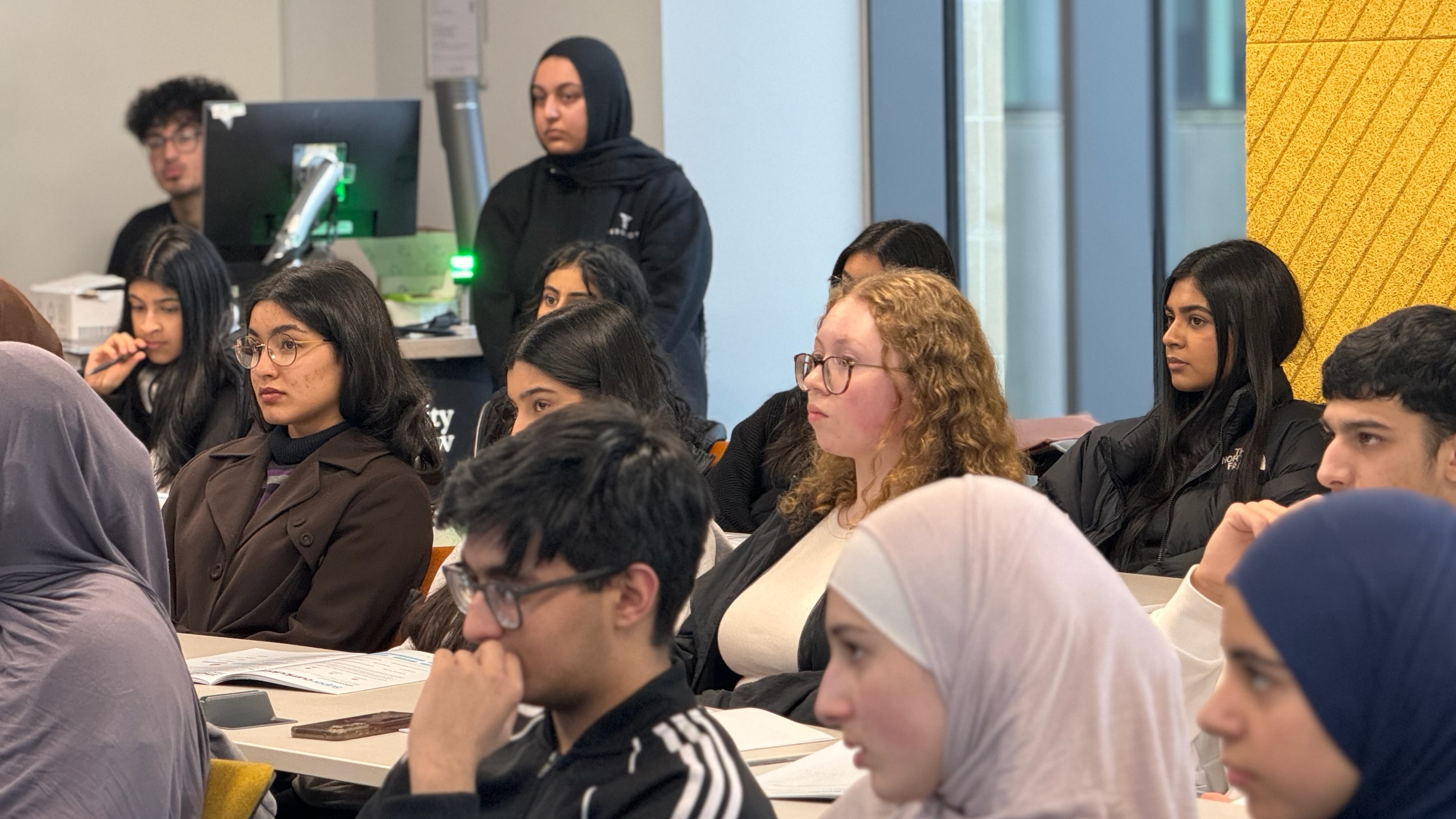Starting medical school can be overwhelming. Learn 7 practical tips from Zaynah, for thriving during your pre-clinical years, from managing workloads and building friendships to effective study methods and self-care.

Learn when and how to ask consultants questions, build trust, and approach mentorship with confidence and humility as a medical or dental student.
So part of the problem is actually setting the groundwork with consultants. You can’t just meet them for one day and then ask them straight away for projects and advice. The best way to do this is to spend time with them and ask meaningful questions to show your interest.
First of all, something that’s very simple but often gets overlooked is simply asking when they like to be asked questions.
For example, in surgical specialties, some surgeons might be open to being asked questions whilst operating, while others might only take questions when they’re ready. You definitely don’t want to annoy them whilst they’re trying to concentrate. Equally, you don’t want to bombard them with questions — it’s a balance between showing your interest and coming off too strong.
The next thing to consider is what to ask. You actually want to ask different questions than people normally would, such as:
We often feel hesitant to ask these types of questions, but remember — they are humans. Asking in this way often makes them open up more and give personal answers, ultimately helping you forge a better relationship with them.
Another thing to keep in mind is how consultants fit into the ego stereotype.
In my own experience, I’ve seen all sorts — some consultants really make a concerted effort to remind everyone that they are superior, while others are very chill, to the extent that they allow you to use their first name. You need to recognise this and then adapt to it. If they have ego, glaze them every so often. This will pay dividends down the line!
After a suitable amount of time, you’d start thinking about asking them for potential mentorship. And this is often the scariest thing to do.
💡 Top tip: Don’t ask them right at the end of your time with them — ask a week or two before it ends.
We often think of consultants as magical beings who hover between wards and seem to know everything. There is some truth to this 😂, but what we forget is that they are human. I learnt that you have to engage with them differently at the beginning — as if you’re talking to a friend.
Picture this: you’re at a social function and you meet someone new. You really resonate with them and would like to stay in contact. What would you do? You’d probably ask them for their number or Instagram, right?
Here’s one thing we often miss though — how they leave the conversation. People can sometimes be ambiguous:
These social cues carry over to engaging with consultants. Remember — they are human, so treat them as such.
When there’s 1–2 weeks left of your time with them, you could say something like:
“I learnt so much from you these past few weeks, would it be inappropriate for us to stay in touch? Occasionally I might WhatsApp you, or do you prefer email?”
Different things might happen:
If this does happen, it’s not that deep. Genuinely. They say rejection is re-direction, and it genuinely is. Ask if they know anyone else who may be willing to advise you, or at the very least, try building a connection with a different consultant.
Besides, if life were only highs, they’d stop feeling like highs at all. As 50 Cent put it:
“Sunny days wouldn’t be special if it wasn’t for rain.”
Regardless of their response, thank them for their time and support nonetheless — it doesn’t cost anything to be kind!
I’ll end with a bit of general advice on networking. Confidence is key when it comes to networking with anyone. It can definitely seem daunting — I personally struggled to muster up the courage to even ask questions in school! But it is genuinely un-deep.
All you need to do is:
When you break it down this way, it doesn’t seem so inaccessible, does it?
If you struggle, just practice talking to people:
Once you get past the mental barrier and build confidence this way, networking will become easy.
One thing that Dr Masood helped me realise is that you must understand yourself through this whole process.
There are countless examples of medics and dentists who seem snobbish, looking down on people studying other courses at different universities. But you must never inflate your ego — that will cost you in how you approach networking.
Dr Masood gave some great advice: “Talk to everyone and everyone.”
It’s very easy to see yourself as better than, say, a porter, a cleaner, or a chef. But if you remove prejudices and arrogance, you’ll end up with a powerful network of people who can support you in many ways. You never know — that one connection could lead to something truly fruitful down the line.
Everyone has a powerful and unique story. It’s a shame that many simply cast people aside just based on their background.
Always remember: in the end, it’s not difficult to talk to people. No need to hesitate — just do it 🔥
Q: How do I know when it’s the right time to ask a consultant questions?
A: Ask early on when they prefer to be asked. Some are open during clinical work, others prefer after. Respecting their rhythm builds trust.
Q: What types of questions should I ask a consultant?
A: Move beyond generic questions. Ask about personal motivations, research, and career choices. It shows genuine interest and sparks more meaningful conversations.
Q: How do I ask a consultant to be my mentor?
A: Time it 1–2 weeks before your placement ends. Express gratitude and ask respectfully if they’d be open to staying in touch.
Q: What if a consultant rejects my request to stay in contact?
A: Don’t take it personally. Thank them, ask if they can recommend someone else, and continue networking with others.
Q: How do I build confidence in networking?
A: Practice talking to people in everyday settings. Start small, build confidence, and approach consultants as humans, not unreachable figures.

Starting medical school can be overwhelming. Learn 7 practical tips from Zaynah, for thriving during your pre-clinical years, from managing workloads and building friendships to effective study methods and self-care.

Learn when and how to ask consultants questions, build trust, and approach mentorship with confidence and humility as a medical or dental student.

Soha shares why a foundation year isn’t falling behind - it’s a head start. Discover how the extra year builds confidence, strong study habits, and opens new pathways into Medicine or Dentistry.
Be a part of our community and never miss an update! Oh and, sign up for our newsletter – essential insights, zero fluff.
We'll leave no stone unturned!
Be reminded about every single event
{
"@context": "https://schema.org",
"@type": "BlogPosting",
"headline": "How to Ask Consultants Questions and Build Mentorship",
"description": "Learn when and how to ask consultants questions, build trust, and approach mentorship with confidence and humility as a medical or dental student.",
"url": "https://medology.co.uk/articles/asking-consultants-questions",
"articleSection": "Networking and Mentorship",
"keywords": ["consultants", "mentorship", "medical students", "networking", "asking questions"],
"author": {
"@type": "Organization",
"name": "Medology"
},
"publisher": {
"@type": "Organization",
"name": "Medology",
"logo": {
"@type": "ImageObject",
"url": "https://medology.co.uk/logo.png"
}
},
"mainEntityOfPage": {
"@type": "WebPage",
"@id": "https://medology.co.uk/articles/asking-consultants-questions"
}
}
{
"@context": "https://schema.org",
"@type": "FAQPage",
"mainEntity": [
{
"@type": "Question",
"name": "How do I know when it’s the right time to ask a consultant questions?",
"acceptedAnswer": {
"@type": "Answer",
"text": "Ask early on when they prefer to be asked. Some are open during clinical work, others prefer after. Respecting their rhythm builds trust."
}
},
{
"@type": "Question",
"name": "What types of questions should I ask a consultant?",
"acceptedAnswer": {
"@type": "Answer",
"text": "Move beyond generic questions. Ask about personal motivations, research, and career choices. It shows genuine interest and sparks more meaningful conversations."
}
},
{
"@type": "Question",
"name": "How do I ask a consultant to be my mentor?",
"acceptedAnswer": {
"@type": "Answer",
"text": "Time it 1–2 weeks before your placement ends. Express gratitude and ask respectfully if they’d be open to staying in touch."
}
},
{
"@type": "Question",
"name": "What if a consultant rejects my request to stay in contact?",
"acceptedAnswer": {
"@type": "Answer",
"text": "Don’t take it personally. Thank them, ask if they can recommend someone else, and continue networking with others."
}
},
{
"@type": "Question",
"name": "How do I build confidence in networking?",
"acceptedAnswer": {
"@type": "Answer",
"text": "Practice talking to people in everyday settings. Start small, build confidence, and approach consultants as humans, not unreachable figures."
}
}
]
}